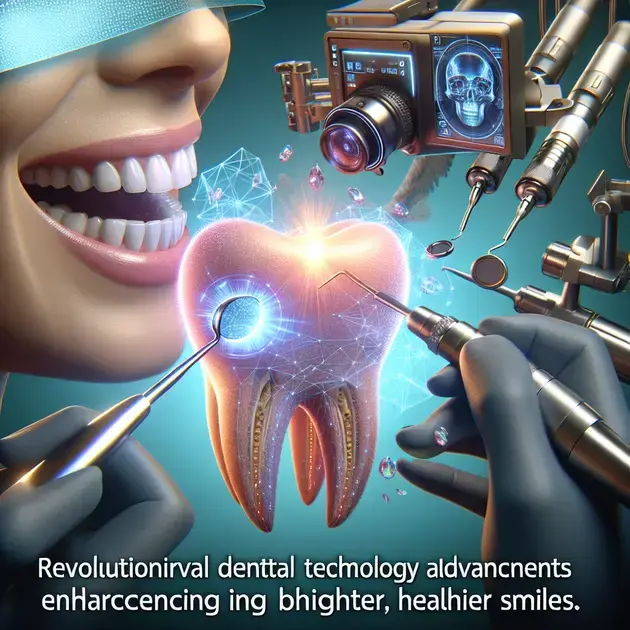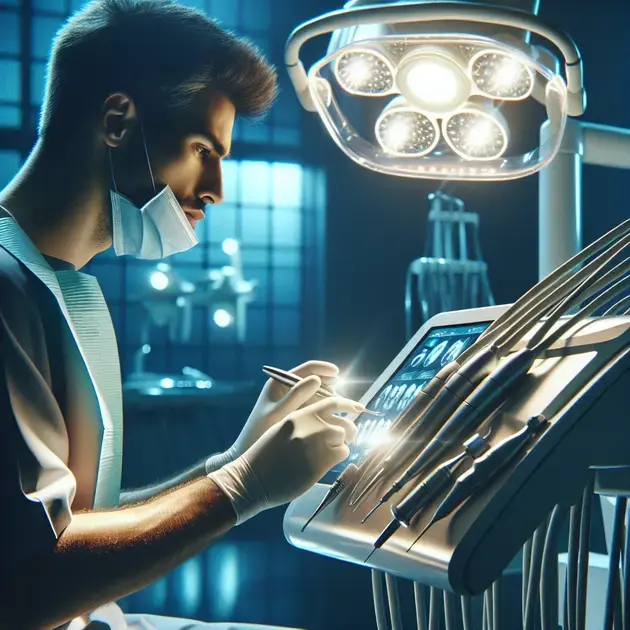When it comes to maintaining good oral health, following a comprehensive dental care routine is essential. In this ultimate guide to oral health, we will explore the best practices and tips to keep your teeth and gums in top condition.
With advances in dental technology and an increased understanding of the importance of oral hygiene, taking care of your teeth has never been easier. This guide will cover everything from daily brushing and flossing techniques to the latest trends in professional dental care.
The Importance of Oral Hygiene
Oral hygiene is crucial for maintaining overall health and preventing various dental issues such as cavities, gum disease, and bad breath. It involves daily practices that help keep your mouth clean and free from harmful bacteria. One of the most important aspects of oral hygiene is brushing your teeth at least twice a day with fluoride toothpaste. This helps remove plaque and food particles that can lead to tooth decay.
In addition to regular brushing, flossing is essential for cleaning between teeth and along the gumline. Using dental floss or interdental brushes can help prevent cavities and gum disease by removing debris that brushing alone may not reach. Mouthwash can also be a helpful addition to your oral hygiene routine, as it can help kill bacteria and freshen your breath.
Visiting your dentist regularly is another important aspect of maintaining good oral hygiene. Professional cleanings and check-ups can help identify and address any issues early on, preventing them from worsening. Your dentist can also provide personalized advice on how to improve your oral hygiene practices based on your individual needs.
For more information on the importance of oral hygiene and tips on how to maintain a healthy smile, you can visit the American Dental Association’s website at https://www.ada.org/en. They offer a wealth of resources and guidelines to help you take care of your teeth and gums.
Effective Daily Dental Care Tips
Effective daily dental care is essential for keeping your teeth and gums healthy. In addition to brushing and flossing, there are several other practices you can incorporate into your routine to maintain good oral hygiene. One important tip is to brush your tongue along with your teeth, as bacteria can accumulate on the surface and contribute to bad breath.
Using a soft-bristled toothbrush and gentle pressure while brushing can help prevent damage to your enamel and gums. It’s also important to replace your toothbrush every three to four months or sooner if the bristles are frayed. This ensures that the bristles can effectively clean your teeth without causing irritation.
In addition to daily brushing and flossing, eating a balanced diet and limiting sugary foods and drinks can help prevent cavities and maintain overall oral health. Drinking plenty of water throughout the day can also help wash away food particles and bacteria that can lead to tooth decay.
To learn more about effective daily dental care tips and how to improve your oral hygiene routine, you can download the Colgate Connect app from the App Store or Google Play. The app provides personalized recommendations and reminders to help you stay on track with your dental care regimen.
Trending Professional Dental Care Practices
Professional dental care practices are constantly evolving to provide the best possible outcomes for patients. One trending practice in the field of dentistry is the use of digital imaging technologies such as cone beam computed tomography (CBCT) for more accurate diagnosis and treatment planning. CBCT allows dentists to visualize the structures of the teeth and jaw in three dimensions, leading to improved outcomes for procedures such as dental implants.
Another professional dental care practice that is gaining popularity is the use of laser dentistry for various treatments, including gum disease therapy and cavity detection. Laser technology offers precise and minimally invasive solutions for a range of dental issues, making procedures more comfortable and efficient for patients.
Tele-dentistry is also a growing trend in professional dental care, allowing patients to consult with their dentists remotely through video conferencing. This can be especially beneficial for individuals who have difficulty accessing traditional dental care due to geographic or mobility limitations.
To stay updated on the latest trends and advancements in professional dental care practices, you can follow the American Academy of Cosmetic Dentistry on their website at https://aacd.com. They provide valuable insights and resources for both dental professionals and patients interested in cosmetic and restorative dentistry.
The Key Benefits of Regular Dental Check-ups
Regular dental check-ups are crucial for maintaining good oral health. Visiting the dentist on a routine basis allows for early detection of any potential issues, such as cavities or gum disease. By addressing these problems promptly, you can prevent them from escalating into more serious conditions that may require extensive treatment.
Another key benefit of regular dental check-ups is professional cleaning. Even with diligent at-home oral care, it can be challenging to remove all plaque and tartar buildup. A dental hygienist can thoroughly clean your teeth, preventing issues like tooth decay and gum inflammation.
Additionally, dental check-ups can help detect oral cancer. Dentists are trained to identify early signs of oral cancer, increasing the chances of successful treatment. Early detection is crucial for improving outcomes and potentially saving lives.
Furthermore, regular dental visits can help you save money in the long run. By addressing minor issues before they escalate, you can avoid costly and extensive dental procedures. Investing in preventive care through regular check-ups can ultimately lead to better oral and overall health.
In conclusion, the key benefits of regular dental check-ups include early detection of issues, professional cleaning, oral cancer detection, and cost savings. By prioritizing routine dental visits, you can maintain a healthy smile and prevent more significant problems down the road.
Innovative Technologies in Modern Dentistry
Modern dentistry has seen significant advancements in technology, revolutionizing the way oral health care is delivered. One innovative technology that has transformed the field is digital radiography. This technology allows for clearer and more detailed images of the teeth and mouth, aiding in accurate diagnosis and treatment planning.
Another exciting advancement is the use of dental lasers. Laser technology enables dentists to perform various procedures with increased precision and minimal discomfort for the patient. From gum contouring to cavity treatment, dental lasers have improved the overall patient experience.
3D printing has also made its way into modern dentistry, allowing for the creation of custom dental restorations with unparalleled accuracy. This technology streamlines the process of creating crowns, bridges, and dentures, resulting in faster turnaround times and better-fitting prosthetics.
Furthermore, intraoral cameras provide patients with a unique perspective on their oral health. These small cameras capture high-definition images of the inside of the mouth, allowing dentists to educate patients on their oral conditions and treatment options effectively.
In conclusion, innovative technologies in modern dentistry, such as digital radiography, dental lasers, 3D printing, and intraoral cameras, have revolutionized the field and improved patient care. Embracing these advancements can lead to more efficient and effective dental treatments.
Nutritional Guidelines for Optimal Oral Health
Proper nutrition plays a significant role in maintaining optimal oral health. Consuming a balanced diet rich in essential nutrients is essential for healthy teeth and gums. Foods high in calcium, such as dairy products and leafy greens, help strengthen tooth enamel and prevent decay.
Limiting sugary and acidic foods is crucial for oral health, as these can lead to tooth erosion and cavities. Opt for fresh fruits and vegetables as snacks, as they not only provide vitamins and minerals but also stimulate saliva production, which aids in natural mouth cleansing.
Staying hydrated is also important for oral health. Water helps wash away food particles and bacteria, reducing the risk of plaque buildup and bad breath. Aim to drink plenty of water throughout the day to keep your mouth and body hydrated.
Incorporating foods rich in vitamin C, such as citrus fruits and bell peppers, can help promote healthy gums and prevent gum disease. Vitamin C is essential for collagen production, which is crucial for maintaining the integrity of the gum tissues.
Overall, following nutritional guidelines that emphasize calcium-rich foods, fresh fruits and vegetables, adequate hydration, and vitamin C sources can significantly improve your oral health. By fueling your body with the right nutrients, you can support strong teeth, healthy gums, and overall oral well-being.
**
Conclusion
**
Regular dental check-ups offer a plethora of benefits that are essential for maintaining excellent oral health. These routine visits enable early detection of potential issues like cavities and gum disease, allowing for prompt intervention and prevention of more severe conditions that may require extensive treatment. In addition, professional cleaning during these appointments ensures the thorough removal of plaque and tartar buildup, effectively preventing tooth decay and gum inflammation, even for individuals who maintain diligent at-home oral care.
Moreover, regular dental check-ups play a vital role in the early detection of oral cancer. Dentists are trained to spot early signs of this disease, significantly increasing the chances of successful treatment and potentially saving lives. By prioritizing these routine visits, individuals not only focus on maintaining a healthy smile but also contribute to overall well-being by addressing minor issues before they escalate, ultimately saving on future dental costs and avoiding more extensive procedures.
Embracing innovative technologies in modern dentistry is another crucial aspect that has revolutionized the field, leading to more efficient and effective dental treatments. From digital radiography providing clearer images for accurate diagnosis to the use of dental lasers and 3D printing for precise procedures and custom restorations, these advancements have significantly enhanced patient care and experience. Additionally, intraoral cameras offer patients a unique perspective on their oral health, facilitating better understanding and education on oral conditions and treatment options.

